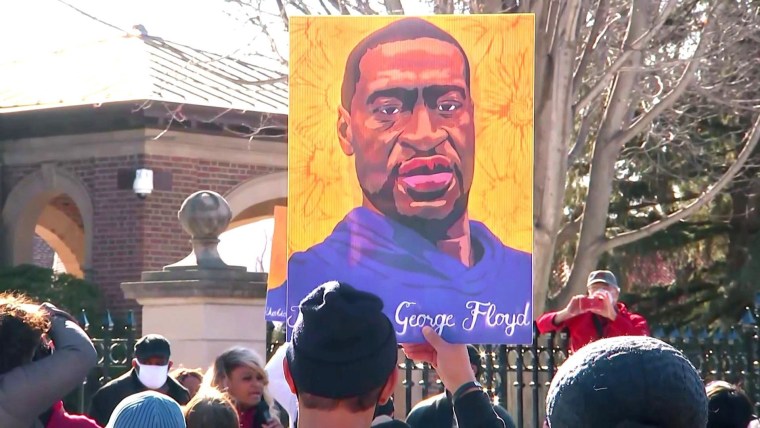This week marks the beginning of the trial of Derek Chauvin, one of the four Minnesota police officers accused of involvement in the outrageous killing of George Floyd last year. After a grocery store clerk called the police over Floyd’s suspected use of a counterfeit $20 bill, a series of police actions ended in Floyd’s brutal death as Chauvin held his knee on Floyd’s neck for more than eight minutes, filmed on a phone for the shocked public to see.
Up to 13 million misdemeanor cases are filed every year, and reflect 80 percent of all arrests across the country.
This is hardly the only time when a call to the authorities has resulted in death at the hands of police, and it’s a step forward to see some officer-involved killings getting the greater scrutiny they demand — and, in the case of Chauvin, a criminal proceeding to document what happened and hold wrongdoers accountable.
But as a former prosecutor and a public defender, we can sadly attest that there still isn’t adequate attention to one of most insidious aspects of Floyd’s killing and that of so many others like him: The original arrest came for an offense that was merely a misdemeanor. Misdemeanors, which include things such as petty theft, public intoxication and reckless driving, are low-level crimes that generally have a statutory maximum sentence of one year in jail but that usually result in little to no jail time.
Chauvin’s trial should serve as a rallying cry for policymakers to not only change when and how police use force, but also for us as a society to rethink what kinds of arrests are really necessary. Every interaction with law enforcement can lead someone down a path of increasing consequences, and justice is not served when the enforcement of a low-level offense like the alleged use of a counterfeit $20 bill is prioritized over the life and livelihood of a person.
Arrests for low-level offenses make up the majority of the cases in the criminal legal system. Up to 13 million misdemeanor cases are filed every year, and reflect 80 percent of all arrests across the country. This mass enforcement of nonviolent misdemeanors is itself a pernicious threat to public safety: We know that just a few days in jail can result in an increased likelihood of committing another offense in the future.
High rates of low-level enforcement can also undermine communities’ willingness to cooperate with police about more serious issues. When individuals bear the high cost of getting arrested for a low-level offense, their trust and willingness to engage with law enforcement is eroded and ultimately affects the overall safety of the community.
And in a pandemic, mass misdemeanor enforcement is a clear public health issue. Policing misdemeanors requires a high volume of street-level interactions — i.e. the opposite of social distancing — and can result in people being arrested and booked into jails where distancing and other precautions are limited.
Covid-19 has accelerated an overdue reckoning: When does an arrest promote public safety, and when does an arrest leave us all worse off? Police departments in cities such as Fort Worth, Texas, Denver and Philadelphia have answered this question by reducing low-level arrests because it’s impossible to keep the public or officers safe while conducting this type of enforcement.
With a high volume of misdemeanor cases funneled into a system that is deeply intertwined with both slavery and Jim Crow injustice, racism can compound each decision point. For starters, while misdemeanor enforcement has recently decreased in many places, the benefits of this decrease are not equally shared, as Black people still face dramatically higher rates of misdemeanor arrests compared to white people. New data from the Research Network on Misdemeanor Justice shows that across seven U.S. jurisdictions, even as misdemeanor arrest rates decreased dramatically from their most recent peaks, racial disparities persisted – and even grew in many jurisdictions. Depending on the jurisdiction and year, these disparities were in some places as high as seven arrests of Black people for every arrest of a white person.
As two people who have worked on opposite sides of the criminal legal system for decades, we have also seen first-hand how biases — conscious or not — show up in the courtroom when two people of different races face the same charge and have similar criminal records. Research confirms our experience: One study showed that compared to a Black person, a white person charged with a misdemeanor is 75 percent more likely to end up with a conviction that carries no possibility of incarceration or with no conviction at all.
This leaves Black people at greater risk of being saddled with the lifelong burden of a criminal record, which perpetuates racial inequalities by limiting access to employment, education and housing. Indeed, people with a misdemeanor conviction experience reduced annual earnings by an average of 16 percent. This fact alone demonstrates how mass misdemeanor criminalization is bad public policy and demands attention from lawmakers.
There are obvious solutions here. Most important, it’s time to stop using misdemeanor arrests and the criminal legal system for things such as public intoxication, driving on a suspended license (often done by people trying to get to work) and trespassing. These are misdemeanors that are disproportionately enforced in communities of color and that put people’s lives at risk when police make an arrest.
Arresting someone for selling loose cigarettes or for drug possession does not improve public safety because it simply punishes poverty and addiction, rather than addressing their underlying causes. Some misdemeanors do not belong in the criminal system, and are better addressed by redirecting resources where they are needed, including into education and social services.
As newly elected legislators convene in states across the country, they must undertake an honest, transparent assessment of misdemeanor statutes, particularly where the criminalization of certain behavior has historically been applied in racist ways, such as drug possession or loitering. Some states have started to do this through marijuana legalization or decriminalization.
If we want our communities to be safe and healthy, defenders and prosecutors must come together to support radical reform of our misdemeanor system. We have clear evidence of racism and inequity, and it is time to break that cycle.
Source: | This article originally belongs to Nbcnews.com










